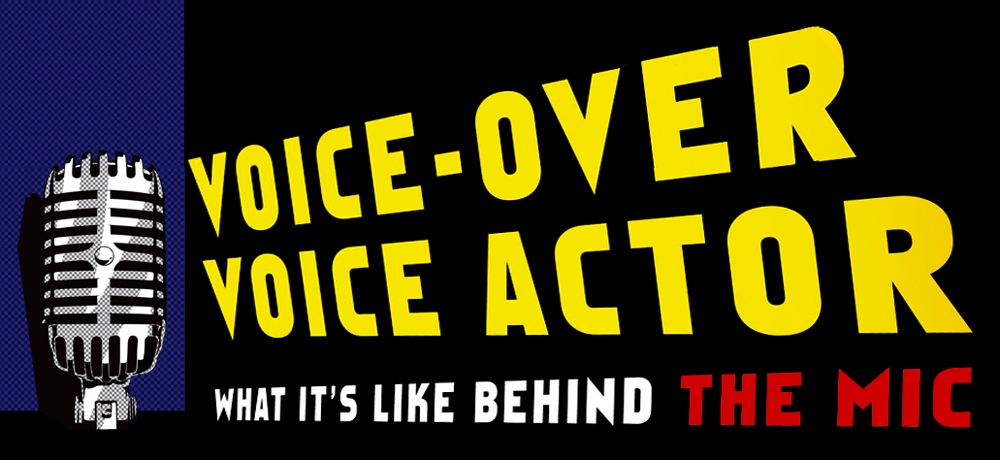Voice Over in the Studio: Taking Direction
Okay. So you got the audition. You showed up, waited in a crowded room with a bunch of other actors, and it’s finally your turn. You’re in the booth, the engineer signals that he or she’s recording, and the director says, Start. (Each director will, of course have their own way of saying, Start. Only rarely will it be, Action! as that’s more an on-camera thing. Sometimes it’ll be We’re rolling, whenever you’re ready … , and sometimes it’ll just be And … Go!)
First, make sure you’ve read the script you have in front of you – before you come in. Nothing makes you more nervous than feeling unprepared. And once you’ve read the script, hopefully you’ve made some sort of choice about it. For example, if you’re going to audition for a commercial, make sure you know how you feel about the product you’re trying to sell, and decide who it is you’re trying to sell it to. You’re going to talk differently to a forty year-old mother of three than you will to a six year-old boy. Be specific. Make that choice. Or come in with a few choices.
And then – this is where it might get confusing for a second, but stick with us, we’re here for you – don’t get too attached to the choice you’ve made. Having made a choice shows the director that, in addition to having some skill as an actor, you’ve read the material, understand it, and have an opinion. Also, a director can better direct you if you’ve made a choice going into the audition.
The director might like your choice, but often – and this is the job of a director, remember – he or she might ask you to do the scene a completely different way. This does not mean that your take on the character the first time through was not right. The CD may have loved your choice, and now just needs to see if you’re directable.
So sometimes you’ll finish your first read and the CD will say, “That was great! Now gimme something different.” This can be annoying, but it happens; so it pays to have something different to give them. And if you don’t, it pays to be good at improv. Of course, if you are having a hard time making a choice based on the material you’ve received, feel free to ask the CD for more information. But if you do ask, don’t just ignore what the CD tells you: make sure you incorporate that new info into your work.
Listen to what directors have to say. Remember, they’re not there to make a fool out of you. They want you to get the job. They want you to be good. It makes their job easier. If they’ve asked you to do it again, it means they already think that you can do it; they just want to see if you’re willing to try it their way. And that’s your job as an actor. Don’t fight the director on interpretation or try to explain why your idea was better (even if it might have been).
Remember, take the direction. If you don’t understand the notes the director gives you, ask him or her to repeat or clarify so that you do understand. Then take a moment to look over the material with this new direction in mind. The CD should be happy to give you this time. There is nothing worse than a director giving direction and an actor not taking it. All that shows the CD is that you might be difficult to work with and unable to do what the director requests. Neither of those are things you want to be known for; nor will they help you book the job.
+++++++++++++++++++++++++++++++++++++++++++++++++++++++++++++++++++
Check out our VoiceOverVoiceActor website for more tips and exercises. We post daily VO tips on Facebook and Twitter, and our book, Voice Over Voice Actor: What it’s like behind the mic includes a wealth of exercises to build your voice and keep it ready for a successful voice over career!
